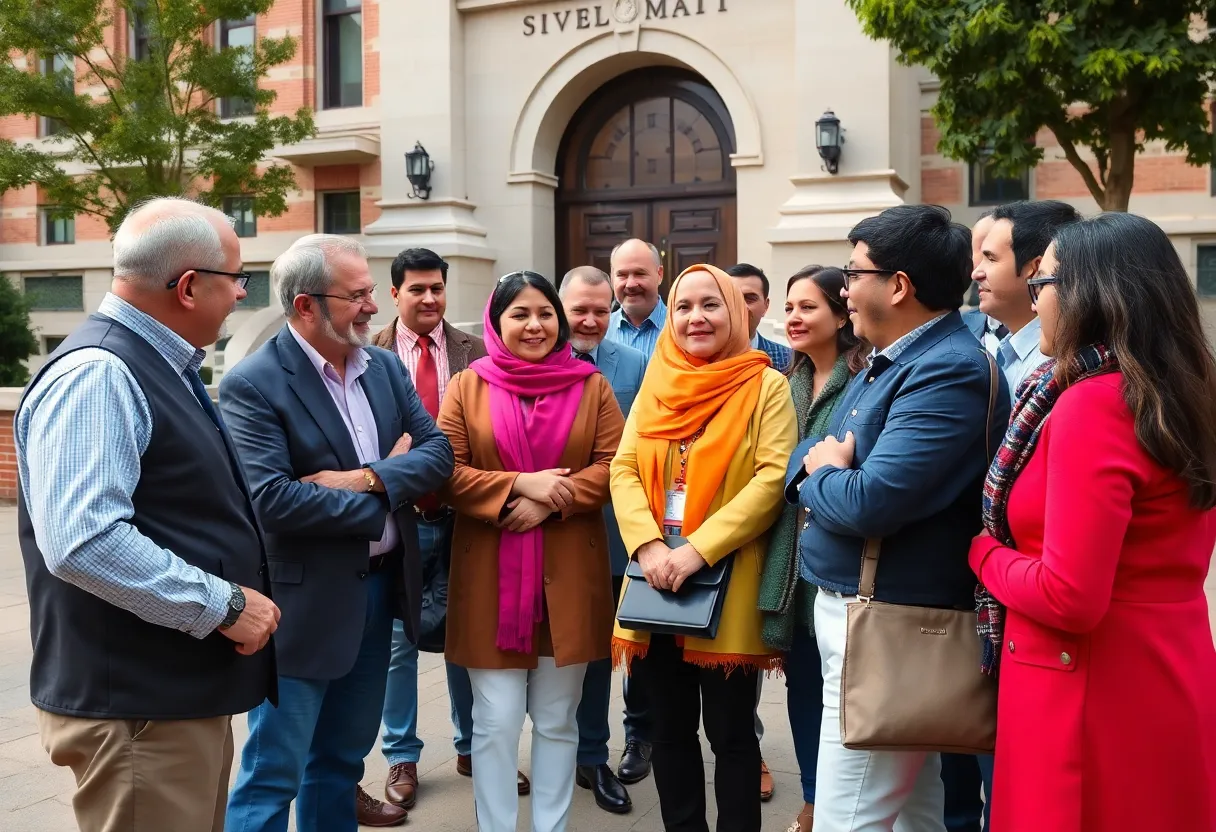News Summary
On February 28, 2025, President Trump announced plans to sign an executive order making English the official language of the United States. This order aims to unify government operations but has raised concerns among various communities about the implications for non-English speakers. While some view it as a way to streamline communication, critics warn it may lead to divisions and hinder civic participation for those who rely on language assistance. The debate continues over the impact on cultural identity and representation in government.
President Trump to Make English the Official Language: What It Means
On Friday, February 28, 2025, President Donald Trump made an announcement that has left many people talking. He is expected to sign an executive order that will officially designate English as the official language of the United States. While the intention behind the order aims for greater unity and efficiency within government operations, the implications have stirred up a wave of concerns among various communities.
What’s in the Executive Order?
This new directive will empower government agencies and anyone receiving federal funding to decide if they want to provide services and documents in languages other than English. This marks a significant change from a previous mandate enacted during former President Bill Clinton’s administration, which ensured support for non-English speakers through language assistance.
The White House has stated that by elevating English to an official designation, it hopes to enhance civic engagement and streamline government operations. Supporters of the move argue that having a common language could facilitate better communication and foster a shared national identity. Indeed, in a country that boasts more than 350 languages, with Spanish, Chinese, Tagalog, Vietnamese, and Arabic being among the most widely spoken, one can see the complexity of communication that currently exists.
Concerns from Activists and Advocacy Groups
Despite the stated goals, a multitude of activists and advocacy groups have expressed deep concern about the potential consequences of this order. Many fear that it could heighten division within communities and create environments of fear among non-English speakers who already struggle to navigate essential services. Critics emphasize that reliance on language assistance is vital for many individuals who depend on clear communication for important information.
Particularly alarming is the thought that this order might slow down the citizenship process for those applying who speak languages other than English. While current applicants have options to secure waivers to participate in interviews in their native tongue based on specific age and residency requirements, limiting federal communication to English may present significant barriers moving forward. Many advocate organizations warn that this could inhibit civic participation and impact individuals seeking vital resources.
Impact on Cultural Identity
According to insights from the International Institute for Democracy and Electoral Assistance, an official language can deeply influence a nation’s character and cultural identity. While some proponents, such as U.S. English, argue that establishing English as the official language could encourage immigrants to learn and use English more readily, others fear that it might stifle cultural diversity and alienate communities that voice their identities through their native tongues.
What’s Next?
The Congressional Hispanic Caucus has indicated that they will respond to Trump’s upcoming address to Congress, emphasizing the importance of bilingual representation in government communications. Additionally, organizations like APIAVote are raising their voices, highlighting potential barriers this order may create for Asian American and Pacific Islander voter engagement. Some commentators point to the fact that over 30 states have already declared English as their official language, yet they question how this new executive order might affect U.S. territories, such as Puerto Rico, where Spanish is predominantly spoken.
In countries around the world, the designation of an official language can take many forms, with countries like Canada embracing both English and French. The new executive order, however, could add a strain to the already fragile intercultural dialogue in the U.S., particularly in light of increasing xenophobia and discrimination against those who do not speak English fluently.
The Bigger Picture
As the nation grapples with this significant shift, the conversation surrounding language, identity, and community continues to evolve. Will this move promote unity, or will it create even greater divides? Only time will tell, but what is certain is that the dialogue surrounding linguistic inclusion has only just begun.
Deeper Dive: News & Info About This Topic
- AP News: Trump to Declare English the Official Language
- Wikipedia: Official Language
- Jonesboro Sun: What Trump’s Order Could Mean
- Google Search: Official Language in the United States
- Untapped Cities: Signs of Gentrification in Brooklyn
- Encyclopedia Britannica: Language
Author: STAFF HERE KNOXVILLE WRITER
The KNOXVILLE STAFF WRITER represents the experienced team at HEREKnoxville.com, your go-to source for actionable local news and information in Knoxville, Knox County, and beyond. Specializing in "news you can use," we cover essential topics like product reviews for personal and business needs, local business directories, politics, real estate trends, neighborhood insights, and state news affecting the area—with deep expertise drawn from years of dedicated reporting and strong community input, including local press releases and business updates. We deliver top reporting on high-value events such as Dogwood Arts Festival, Big Ears Festival, and Knoxville Asian Festival. Our coverage extends to key organizations like the Knoxville Area Chamber Partnership and United Way of Greater Knoxville, plus leading businesses in healthcare, education, and energy that power the local economy such as Covenant Health, University of Tennessee, and Tennessee Valley Authority. As part of the broader HERE network, including HEREBristol.com, HEREChattanooga.com, HEREMemphis.com, and HERENashville.com, we provide comprehensive, credible insights into Tennessee's dynamic landscape.






